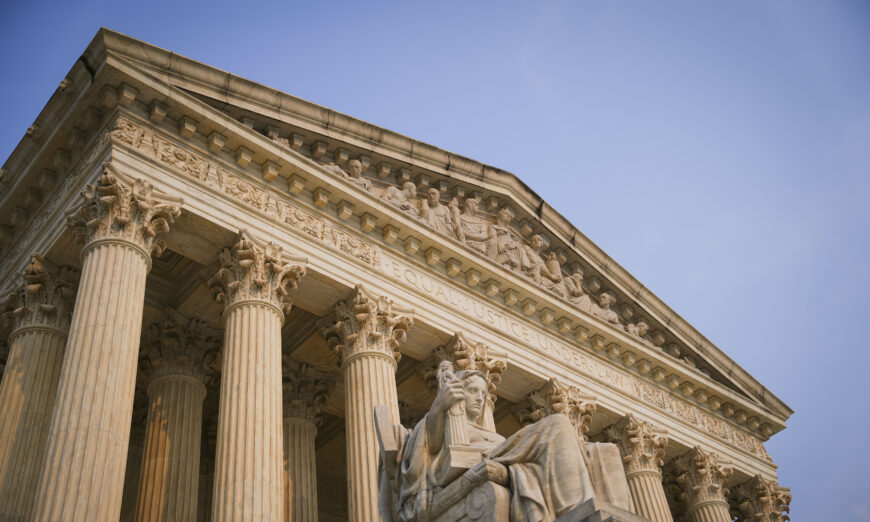Debate among experts on how much US Supreme Court ruling affects labor strikes.
Supreme Court Ruling Undercuts Organized Labor
By John Kruzel
The U.S. Supreme Court has delivered the latest in a series of rulings undercutting organized labor, with some legal experts predicting that the decision will make unions that engage in strikes more vulnerable to lawsuits while others see a more modest impact.
An 8-1 ruling on Thursday authored by conservative Justice Amy Coney Barrett made it easier for companies to sue over strikes that cause certain instances of property damage. The case involved a strike by the union representing truck drivers at a concrete business owned by Japan-based Taiheiyo Cement Corp in Washington state.
Some experts viewed the ruling as consistent with the conservative-majority court’s history in recent years of restricting union and employee rights.
Experts Weigh In
- Angela Cornell, a Cornell Law School labor law professor, called it “another decision that undermines the capacity of unions to function.”
- Indiana University Maurer School of Law labor and employment law professor Kenneth Dau-Schmidt, who also joined a brief backing the union, added, “The decision is part of a systematic project by the Supreme Court to limit employee collective rights in the name of industrial peace while expanding employer weapons of lockouts and permanent replacements in the name of private property rights and free enterprise.”
- According to Harvard Law School professor of labor and industry Benjamin Sachs, if lower courts faithfully apply the reasoning detailed in Barrett’s decision then it “won’t do much damage to the right to strike.”
The court ruled in favor of Glacier Northwest Inc, which sued a local affiliate of the International Brotherhood of Teamsters after a work stoppage forced the company to discard undelivered concrete. The justices ruled that the company’s claims were not preempted by a statute called the National Labor Relations Act on the grounds that the union had failed to take “reasonable precautions” to prevent a foreseeable and imminent harm to the employer’s property resulting from the strike.
The ruling comes at a time of increasing strikes called by U.S. labor unions. According to U.S. Bureau of Labor Statistics data, the number of American workers who participated in strikes and similar activities in 2022 increased by nearly 50% compared to the previous year.
Some experts pointed out that the ruling largely preserved the existing legal scaffolding for deciding labor law preemption cases of this kind.
The Supreme Court, with its 6-3 conservative majority, has dealt setbacks to organized labor in key cases in recent years.
Brudney said Thursday’s ruling “was not comparable to that broader trendline” of decisions weakening labor unions.
West Virginia University College of Law professor Anne Marie Lofaso said, “The case fits into the judicial trend to weaken labor unions by weakening what counts as protected concerted activity.”
(Reporting by John Kruzel in Washington; Editing by Will Dunham)
" Conservative News Daily does not always share or support the views and opinions expressed here; they are just those of the writer."





